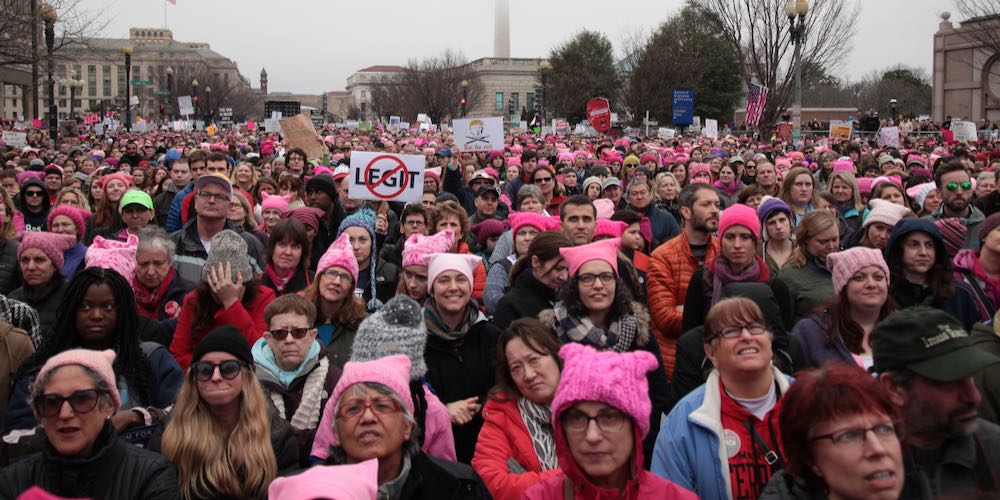Americans should always be reminded that democracy can gravely err in deciding questions of justice.
When Politics Becomes Therapy
In 2014, 22-year-old Elliot Rodger went on a rampage and killed 6 people. The killings were a tragedy, but somehow they were viewed as lying on the margins of politics. For some, the incident raised the issue of gun control. For others, it raised the issue of mental illness. The fact that Rodger was an Incel (Involuntary Celibate) who hated women suggested the nation’s culture wars were also involved. Yet the massacre was never viewed as part of a more fundamental shift in the structure of American politics.
It should have been. Elliot’s rampage heralded a new realm of illusion in politics.
The realm of illusion is more than just the realm of ideology taken to the paranoid extreme. The John Birchers and the Weathermen, the survivalists and the militia groups of the 1990s, exemplified the latter. They saw very specific but unreal threats to the economy, to the American democratic system, to the state of their physical security, or to the social quality of their lives, and they lashed out violently.
In contrast, in the realm of illusion, people experience unhappiness in their private lives for no clear reason. Some of them may credit that unhappiness to loneliness, yet their unhappiness seems to flow from no obvious source, tapping as well into a weariness they feel toward their daily duties, a bitterness they feel toward the fatuity and soullessness of their relationships—even boredom. They have somehow bruised themselves against the rocks of life. In their unease, they start to dream of a better life. The origins of their dream can be equally hard to pin down, drawing, for instance, from a passion to love others and be loved, from a desire to feel “well” in some existential sense, and from a nebulous faith in humanity. Their dreaming gradually leads them into an illusory world where they find an explanation for their personal unhappiness that is, at best, distantly related to any specific threat coming from the outside world. Then they, too, like radical ideologues, lash out, sometimes violently.
American politics have traditionally been a fight between competing interests or ideologies. Debates over taxes are an example of the former, and the struggle over racial integration during the early 1970s is an example of the latter. Today, because of people like Elliot Rodger, a new dimension has been added to American politics: fights between competing illusions. People vociferously defend their false version of reality against an opposing false version of reality, as well as against reality itself.
Rodger exemplified the change. He was an Incel who hated women. On the opposite side are third-wave feminists who hate men, such as the female journalist who wrote several years ago, “men are trash.” In the past, fights between the sexes were about interests, and to some degree still are—for instance, the fight over whether women are adequately compensated at work. They were also fights over ideologies, and to some degree still are—for instance, the fights over reproductive rights and special set-asides for women in universities.
Second-wave feminist ideology supports these advantages, while the ideology of the Men’s Rights Movement opposes them. For example, the latter seeks to expand the rights of unwed fathers in case of their child’s adoption, while the former worry that doing so might lead to undue pressure on women trying to decide whether to carry the child or have an abortion. The two ideologies appeal to the interests of women and men, respectively, while also possessing a strong element of aspiration in them. Each one nurtures a link with interest-oriented institutions, such as state bureaucracies or corporations, to further an agenda, while also having a sense of revolutionary mission about how to make life better for their respective constituencies.
This is how political ideologies work. They tap into popular social forces to force interest-oriented institutions to change. They combine serious policy ideas with catchwords and slogans that appeal to the hopes and fears of average people.
The fight between Incels and third-wave feminists goes forth on an entirely different plane. It is a fight between illusions. Neither side is an interest group; neither side advocates particular policies awaiting implementation. Incels are the most peculiar, often refusing to even identify themselves in public. Third-wave feminists do publicly identify themselves. Sometimes they expand on second-wave feminist issues, such as sexual liberation, the glass ceiling, and abortion. When they do, they function very much like ideologues. But when their third-wave quality emerges, their movement starts to lack cohesion. Their concerns are all over the map, and with no clear policy implications, ranging from complaints about derogatory words to an obsession with “manspreading” on buses and subway cars to purposely downplaying a woman’s femininity and encouraging women to adopt a raunchy style. Indeed, average people often ask the same question about both Incels and third-wave feminists: “What exactly do they want?” The lack of any specific, well-defined agenda confuses people, who expect organized activists engaged in protest to demand something. Yet the demands of Incels and third-wave feminists are often unclear. Illusions divorced from reality yield few practical policies.
Journeys of personal confusion begin with one person seeking an explanation for why he or she feels unhappy. When others join the search, the journey takes on a public face, yet it remains somewhat of a private affair.
Nor are the Incel movement and third-wave feminism ideologies. The two movements do have world views, but their worldviews are not operational tools. The two movements lack practical guidelines for advancing their cause in the realm of interests. Even the most utopian ideologies envision progress on some practical level, as in matters of order or justice. These are matters of concern that relate to the behavior of some large-scale organizations in society—hence, the strong link between ideologies and interests. All ideologies can trace their origin back to the same question, “How should we live?” with some segment of the population answering in a specific way as they seek to improve their lives by forcing an institution—typically government—to change.
In contrast, while Incels and third-wave feminists have something that resembles a body of doctrine, they trace the origin of their doctrine back to a different question: “What explains this unhappiness I feel?” They seek an explanation for their unhappiness in a remote cause that happens to coincide with the concerns of some political movement. Rodger, for example, blamed his unhappiness on women. In turn, some third-wave feminists blame their unhappiness on men. When enough unhappy people join together around a common illusion as an explanation—for example, the notion that all women or men are evil—they become an activist group, such as the Incels or third-wave feminists. Yet the group behaves in a different manner from interest-oriented or ideologically oriented groups involved in the same issue.
Ideological journeys may begin with one person seeking justice, but as others join in the search, the journey becomes a mass social movement focused on achieving some substantial reform in the real world. In contrast, journeys of personal confusion begin with one person seeking an explanation for why he or she feels unhappy. When others join the search, the journey takes on a public face, yet it remains somewhat of a private affair for each individual in the group, as the group’s goals resonate less with any public aim and more with the most intimate and secret recesses of each individual.
Some dread nullity has entered a person’s heart. It demands redress. Depending on the remote cause of that dread nullity, the person searches for love, community, well-being, identity, the meaning of who one is, personal vindication—the list goes on. The person is not seeking justice or security, so much as to solve a riddle: the riddle he himself is. Everyone in the activist group feels similarly. Their journey as a group represents not a mass movement so much as a mass of individuals engaged privately in some inner struggle, and who are thrust together almost by happenstance because each person has defined his or her unpleasant sensation in the same way. The group’s goal is not social change so much as the opportunity to act out their illusion in society, to preserve the integrity of their illusion, and to keep reality at bay. It is a different kind of journey from the journey of ideologues.
Both Incels and third-wave feminists nurture their respective hate in the false reality they have created for themselves. They almost enjoy their respective hates. They define themselves by their hate. Meanwhile, any emphasis on practical social reform gets short shrift.
It can be hard to disentangle the Incels from other, more interest-oriented or ideological groups in the so-called “manosphere,” such as the Men’s Rights Movement, just as it can be hard to disentangle third-wave feminists from the more interest-oriented or ideological second-wave feminists. In each case the different groups are like close planets exchanging light; nevertheless, they circle in orbits that belong to separate systems. Their paths may intersect at times—they may agree on certain points—but they never merge.
The same pattern can be found in other American political debates. In each case, there are the usual players motivated by interests or ideology, but also this added dimension composed of activists engaged in a more personal struggle, and who seek to defend an illusion of some kind. In the realm of illusion, activists focus less on tangible policy issues and more on things that cause personal slights, such as microaggressions, or novelists from outside the activist group who presume to be able to capture the experience of those inside the group.
In the climate change debate, for example, there are the usual competitors in the realm of interests, such as the fossil fuel companies on one side and the “green” companies eager to make money from alternative fuel sources on the other. In the realm of ideology, there are those who believe in the free market’s ability to address climate change, and, opposing them, those who demand aggressive state action. But within the realm of illusion, there are also ardent activists who have connected their deep psychological struggle to the environmental cause—for example, they seek “environmental wellness.” They search for inner peace through nature. In the process, they are wrongly grouped with interest groups and ideologues on the progressive side of the debate. They may complement the latter, but they are not the latter.
True, many environmentalists blend the different realms. A person can have a toehold in all three. But invariably one realm lies uppermost. Which one does often determines that person’s willingness to compromise in political debate, as well as his or her expression of fury and violence when engaged in political action.
Identity politics offers another example. In the realm of interests, there are those who seek to make money from set-asides for marginalized communities. In the realm of ideology, there are those who believe in affirmative action. But there are also people who live in the realm of illusion, who feel unhappy, and who lash out and blame their unhappiness on seemingly invisible threats. For instance, in 2023, the school superintendent’s position in a small Massachusetts town opened up. With no ill intent, the first applicant addressed two women on the search committee as “ladies.” The committee members erroneously perceived the word as an attack. By projecting their own thoughts and fears onto the word, they experienced the illusion of being insulted. The applicant apologized and said he meant no harm. But it didn’t matter. When people suffer from an illusion they tend to erase what other people around them are saying. They do not hear. The search committee demanded the man withdraw.
Such people form a third layer within the identity politics movement. They have a fundamentally different motivation from their more interest-oriented or ideological allies. They seek psychological well-being, security, and reassurance. They are fragile; their nerves are taut; they feel unpleasant sensations for reasons they do not understand. Their goal in identity politics is fundamentally different from people of color pursuing the more humdrum goal of, say, establishing a state commission to review police methods of collecting evidence.
People who feel unhappiness are naturally filled with religious-like sentiments. They seek to understand the mystery of what they feel as much as they seek relief from their condition. Who can have sent this enemy into the camp of our lives, they ask? And who exactly is this enemy? As more Americans try to address their private pain by seeking answers in illusions—illusions that in in some way correspond to the agenda of a political movement—American politics grows increasingly extreme, chaotic, and uncompromising. By piggybacking their problems onto the realms of interests and ideology, these people inject into the American political system problems that the system was never designed to handle.


